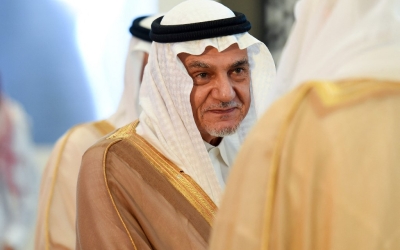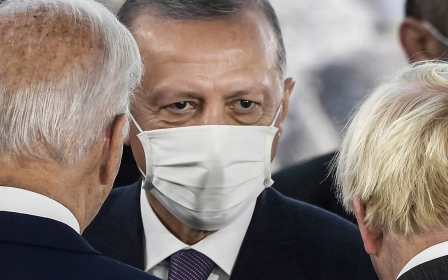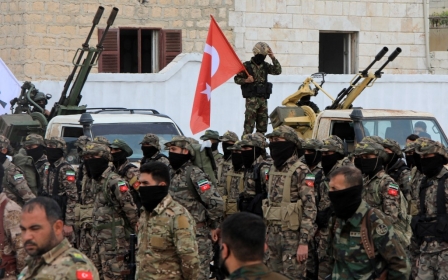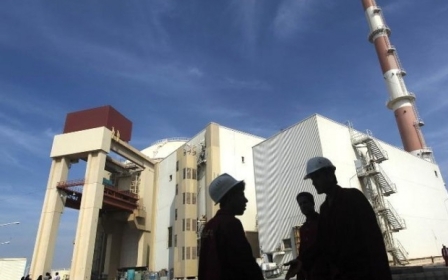Former Saudi intel chief questions Biden's commitment to Middle East security
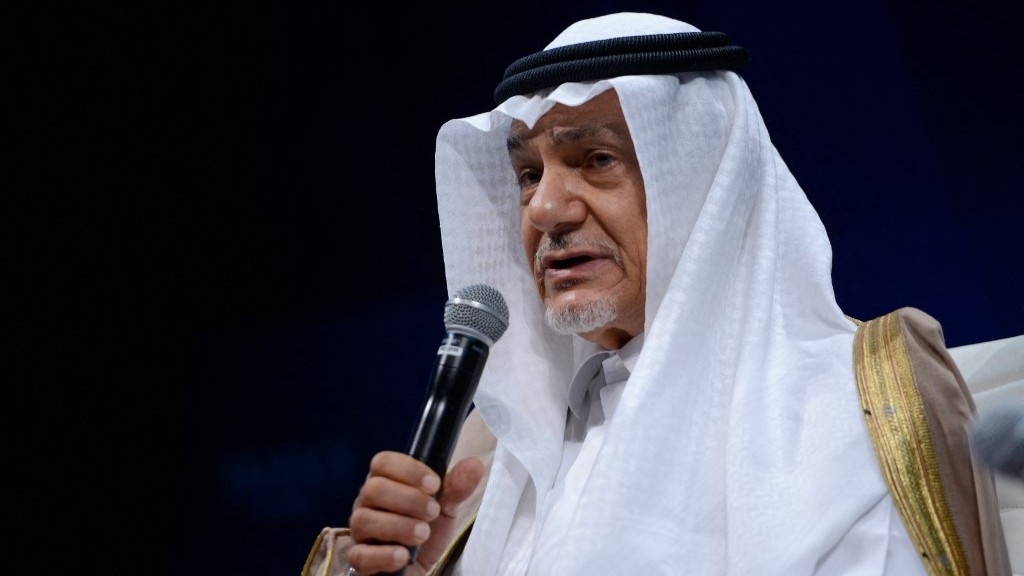
Saudi Arabia's former intelligence minister Prince Turki al-Faisal said on Tuesday that regional states were questioning the United States' role in the Middle East after two decades of military interventions in Iraq and Afghanistan resulted in failures.
Speaking at an event hosted by the Atlantic Council on Tuesday, Prince Turki said the Biden administration's decision to withdraw troops from Afghanistan, as well as the planned withdrawal of combat troops from Iraq, was putting Washington's influence in the region in question and the Middle East was suffering from "strategic confusion".
"This failed experience in Afghanistan, and I would say semi-failed experience in Iraq, are responsible for the perceived failure or defeat, if you like, of a great power, the United States, and the greatest military alliance, Nato, in sustaining a regime and project of their creation," he said.
"The United States was the dominant power for the last seven decades. Therefore, doubts about its role and commitments to preserve regional security are accumulating and resulting in a continued strategic regional confusion, which leads to more conflicts and crises.
"No region in the world fears the danger of this strategic confusion more than the Middle East region."
Since coming into office earlier this year, US President Joe Biden has signalled a shift from the Middle East towards confronting Russia and China.
In addition to withdrawing from Afghanistan in August, the US has announced a plan to withdraw all combat troops from Iraq. Prince Turki previously criticised the manner in which the US withdrew from Kabul and warned that American weapons could fall into the hands of militant groups including al-Qaeda.
Biden also announced in February that it was ending its support for offensive operations in the Saudi-led coalition's war in Yemen, a move followed by a freeze on a weapons sale to the kingdom.
Since then, Washington has also moved to withdraw a number of Patriot missile defence batteries from Saudi Arabia.
"The United States abandoning its responsibility to its friends and allies is not a recipe for peace and security in the region," Prince Turki said.
'Preserving regional peace'
As it shifts in focus away from the region, the US has been faced with a number of issues in the Middle East over the past year, including the deadly Israeli offensive on Gaza that killed hundreds of Palestinians, Tunisian President Kais Saied's move to freeze parliament, and a military coup that upended the democratic transition process in Sudan.
The Saudi royal said that rather than intervening militarily, the US could offer some benefit to the region by helping countries "find their own approach to reconstruct regional order that serves the national interests and preserve regional peace and security".
Meanwhile, Washington has grown concerned over China's increasing footprint in Middle East countries.
Earlier this year, the US Senate Foreign Relations Committee passed a wide-ranging bill aimed at curbing Beijing's influence around the world, including in the Middle East. China was quick to denounce it, calling the bill an excuse to "interfere in China’s domestic politics".
Prince Turki said that the Middle East still holds significant strategic importance to the international community, and that "its countries need not be put in a situation to choose between great powers involved in strategic contests".
Middle East Eye delivers independent and unrivalled coverage and analysis of the Middle East, North Africa and beyond. To learn more about republishing this content and the associated fees, please fill out this form. More about MEE can be found here.


